
Agra: The Jewel of Mughal India
Agra is a city that brings history to life. Located on the banks of the Yamuna River, it is home to the world-famous Taj Mahal. This marble masterpiece is not just a monument, but a symbol of eternal love. As you walk through its grand gardens, you'll feel the romance and history in the air. Beyond the Taj Mahal, Agra offers a range of historical sites and cultural experiences. The Agra Fort, a UNESCO World Heritage site, provides a glimpse into the grandeur of the Mughal Empire. Its stunning red sandstone walls and intricate palaces are a testament to Mughal architecture. Don't miss the chance to explore the Diwan-i-Am and Diwan-i-Khas, the public and private audience halls of the emperors. The city's bustling markets are a paradise for shoppers. From exquisite handicrafts to delicious street food, there's something for everyone. Savor the local delicacies like petha, a sweet treat made from ash gourd, and Mughlai cuisine, which features rich, flavorful dishes. Agra's vibrant culture is evident in its festivals and traditions. Visit during the Taj Mahotsav, a 10-day festival celebrating art, culture, and cuisine. The city's warm and friendly locals will make you feel at home, ensuring that your visit is memorable.
Local tips in Agra
- Visit the Taj Mahal early in the morning to avoid crowds and enjoy the sunrise.
- Hire a local guide at the Agra Fort for an informative tour.
- Try the local petha sweet; Panchhi Petha is a famous shop.
- Bargain at the markets for the best deals on handicrafts.
- Wear comfortable shoes as you'll be walking a lot while exploring historical sites.
- Carry a water bottle and stay hydrated, especially during the summer months.
- Visit Mehtab Bagh for a different perspective of the Taj Mahal, especially at sunset.
Neighbourhoods in Agra
Agra: The Jewel of Mughal India
Agra is a city that brings history to life. Located on the banks of the Yamuna River, it is home to the world-famous Taj Mahal. This marble masterpiece is not just a monument, but a symbol of eternal love. As you walk through its grand gardens, you'll feel the romance and history in the air. Beyond the Taj Mahal, Agra offers a range of historical sites and cultural experiences. The Agra Fort, a UNESCO World Heritage site, provides a glimpse into the grandeur of the Mughal Empire. Its stunning red sandstone walls and intricate palaces are a testament to Mughal architecture. Don't miss the chance to explore the Diwan-i-Am and Diwan-i-Khas, the public and private audience halls of the emperors. The city's bustling markets are a paradise for shoppers. From exquisite handicrafts to delicious street food, there's something for everyone. Savor the local delicacies like petha, a sweet treat made from ash gourd, and Mughlai cuisine, which features rich, flavorful dishes. Agra's vibrant culture is evident in its festivals and traditions. Visit during the Taj Mahotsav, a 10-day festival celebrating art, culture, and cuisine. The city's warm and friendly locals will make you feel at home, ensuring that your visit is memorable.
When is the best time to go to Agra?
Iconic landmarks you can’t miss
Taj Mahal
Experience the timeless beauty of the Taj Mahal, a UNESCO World Heritage Site and a symbol of eternal love in Agra, India.
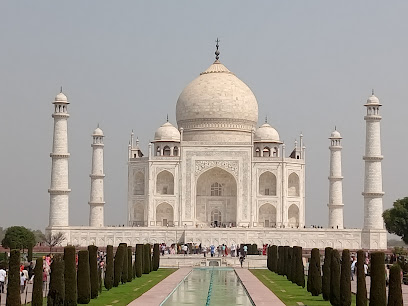
Agra Fort
Explore the grandeur of the Mughal Empire at Agra Fort, a UNESCO World Heritage site showcasing stunning architecture and rich history.
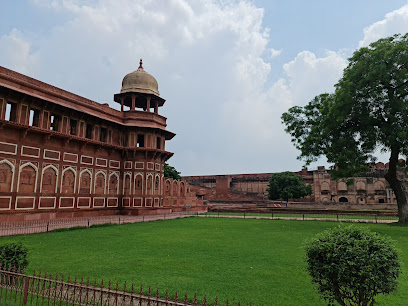
Itmad-ud-Daula
Discover the majestic Itmad-ud-Daula, a stunning mausoleum showcasing exquisite Mughal architecture and rich history in Agra, Uttar Pradesh.

Mehtab Bagh
Experience the Taj Mahal from a serene Mughal garden, offering breathtaking views and a peaceful escape in Agra.
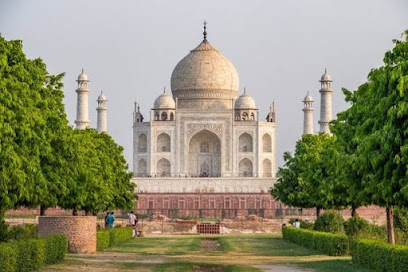
Tomb of Akbar
Explore the Tomb of Akbar, a magnificent Mughal-era mausoleum in Agra, blending architectural styles in a serene garden setting.
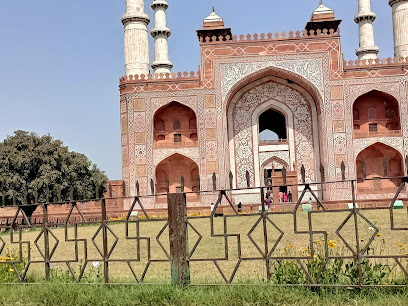
Sikandra Fort
Explore Sikandra Fort, the majestic resting place of Mughal Emperor Akbar, showcasing a unique blend of architectural styles and serene gardens.
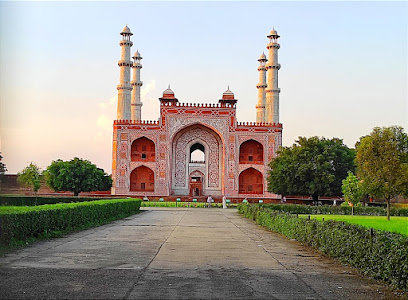
Taj Nature Walk
Discover a peaceful oasis near the Taj Mahal: lush greenery, diverse wildlife, and stunning views await at Taj Nature Walk.
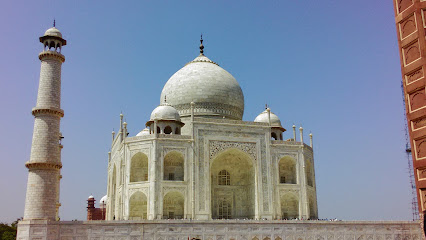
Anguri Bagh
Experience the serenity of Anguri Bagh, a Mughal garden within Agra Fort, offering a glimpse into the opulent lifestyle of emperors.
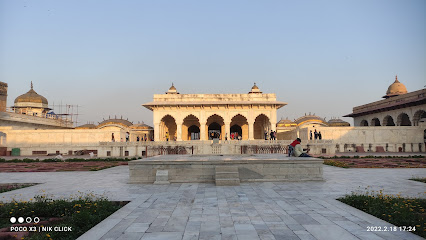
Amar Singh Gate
Explore the grand entrance to Agra Fort, a testament to Mughal artistry and strategic design, named in honor of a Rajput hero.
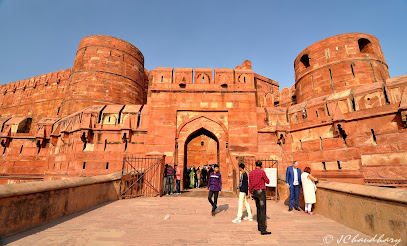
Red Fort of Agra
Explore the majestic Red Fort of Agra, a UNESCO World Heritage site and a symbol of Mughal power and architectural brilliance.
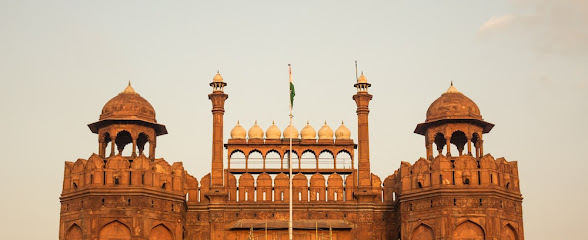
Chini Ka Rauza
Discover Chini Ka Rauza in Agra: A unique Mughal tomb adorned with glazed tiles, showcasing Persian architecture and serene riverside gardens.

ram Bagh
Discover Ram Bagh in Agra: A serene Mughal garden offering a tranquil escape into history, architecture, and natural beauty.
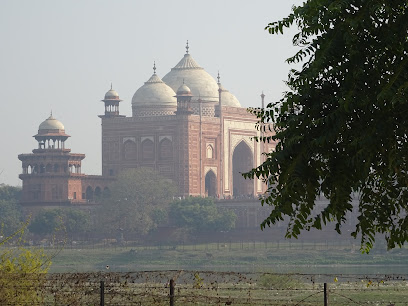
Tomb of Mariam-UZ-Zamani
Explore the Tomb of Mariam-uz-Zamani in Agra, a testament to Mughal-Rajput harmony and architectural brilliance. A serene and historically rich experience awaits.
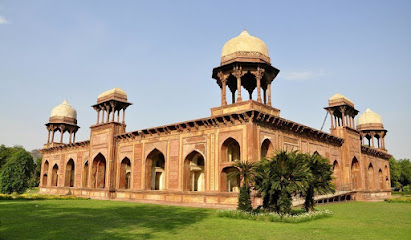
Taj Museum
Explore Mughal artifacts and delve into the history of the Taj Mahal at this captivating museum within the iconic complex.

Rawli Temple Agra
Discover serenity at Rawli Temple in Agra, an ancient Shiva shrine with a miraculous past and peaceful ambiance.
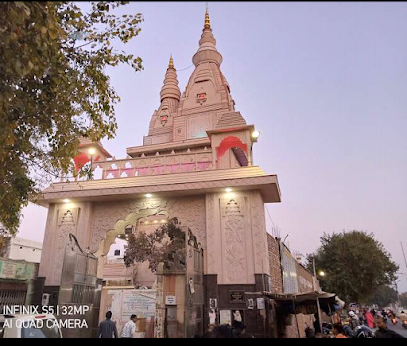
Unmissable attractions to see
Shri Krishna Janmasthan
Discover the spiritual essence of Shri Krishna Janmasthan, the birthplace of Lord Krishna, in Mathura, a sacred pilgrimage site that enchants visitors.
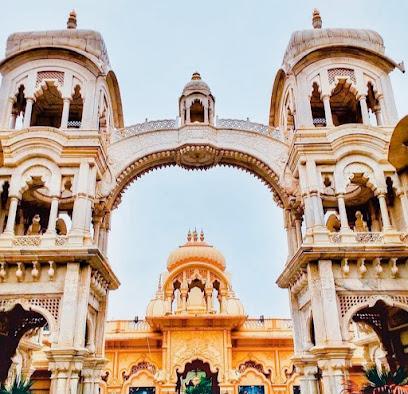
Gurudwara Guru Ka Taal
Explore the spiritual and architectural beauty of Gurudwara Guru Ka Taal, a serene Sikh temple in Agra that offers cultural immersion and peace.
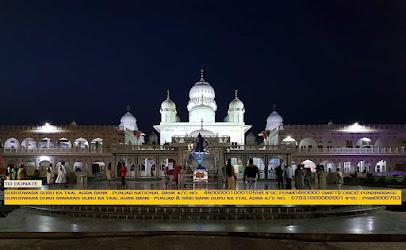
ShriDwarkadhish Temple, Mathura
Experience the divine beauty and cultural richness of Shri Dwarkadhish Temple, a must-visit spiritual hub in Mathura, India.
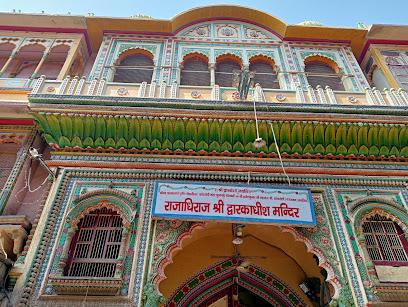
Keoladeo National Park
Explore the breathtaking Keoladeo National Park, a UNESCO World Heritage site, known for its incredible biodiversity and picturesque landscapes.
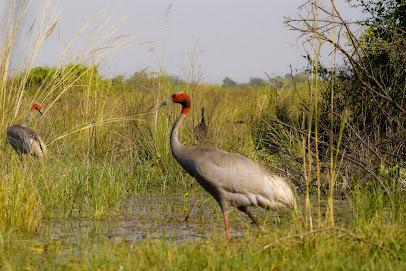
Itmad-ud-Daula
Discover the exquisite Mughal architecture of Itmad-ud-Daula, the charming 'Baby Taj' of Agra, and its serene gardens along the Yamuna River.

Jodha Bai's Palace
Discover the enchanting Jodha Bai's Palace, a historical landmark in Fatehpur Sikri, showcasing Mughal architecture and rich cultural heritage.
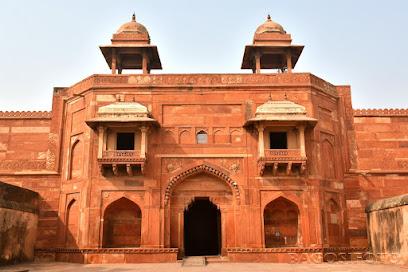
Buland Darwaza
Experience the grandeur of Buland Darwaza, the tallest gateway in the world, and immerse yourself in the rich history of Mughal architecture.
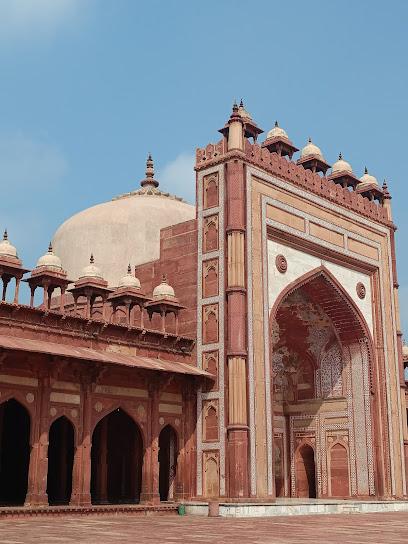
Shri Mankameshwar Temple, Agra
Experience the spiritual heart of Agra at Shri Mankameshwar Temple, a historic site dedicated to Lord Shiva, steeped in tradition and vibrant culture.
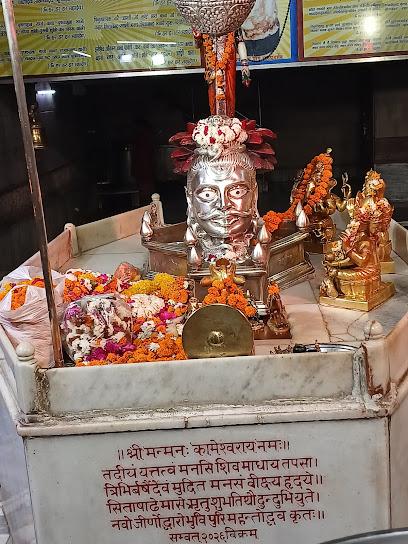
Mehtab Bagh
Discover the tranquil beauty of Mehtab Bagh, the perfect spot for breathtaking views of the Taj Mahal amidst lush landscapes and Mughal history.
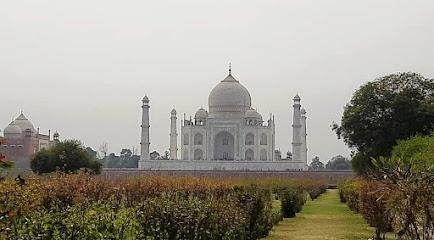
Paliwal Park
Experience the serene beauty of Paliwal Park, a hidden gem in Agra offering lush landscapes and cultural charm for all visitors.
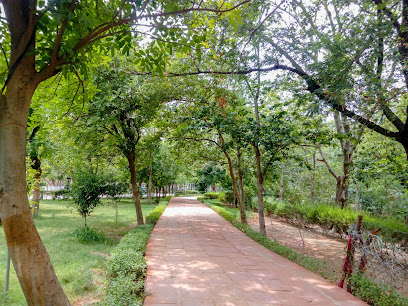
Balkeshwar Park
Explore the serene beauty of Balkeshwar Park in Agra, a perfect retreat for relaxation and leisure amidst lush greenery and captivating scenery.
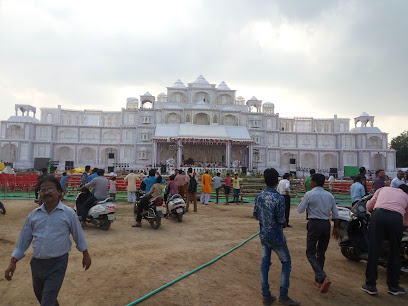
Vishram Ghat
Discover the spiritual essence of Mathura at Vishram Ghat, a serene riverside destination rich in culture and devotion.
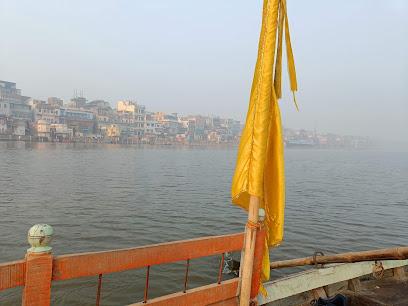
Shaheed Smarak
Explore the serene Shaheed Smarak in Agra, a tribute to bravery amidst lush landscapes, perfect for reflection and relaxation.
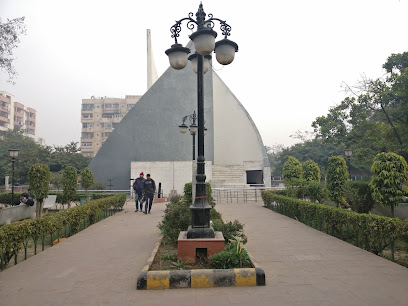
Dolphin Water Park
Experience thrilling water adventures at Dolphin Water Park, a must-visit destination in Uttar Pradesh for fun and relaxation.
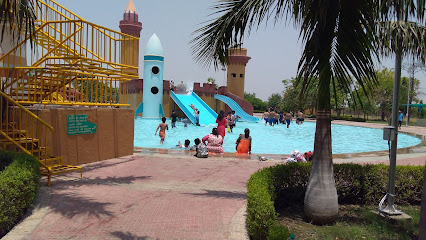
Carnival Cinemas
Experience the best of cinema at Carnival Cinemas in Agra, where diverse films and modern facilities create unforgettable movie moments.
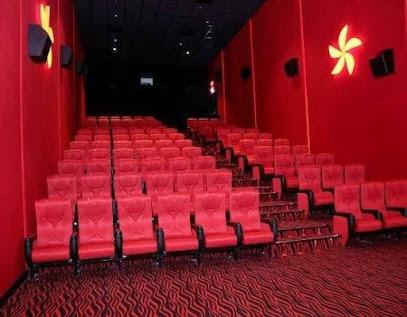
Essential places to dine
The Salt Cafe
Discover The Salt Cafe in Agra – where global flavors meet local hospitality near the iconic Taj Mahal.
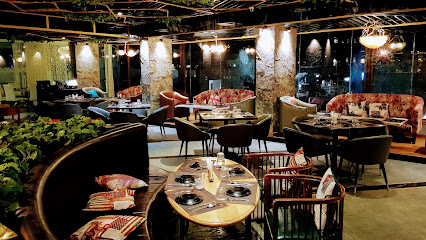
Mama Chicken Mama Franky house
Experience the rich flavors of Indian cuisine at Mama Chicken Mama Franky House in Agra - a haven for chicken lovers and barbecue enthusiasts alike.
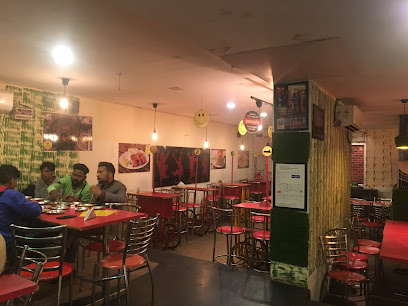
Pind Balluchi Agra
Experience authentic Indian cuisine at Pind Balluchi Agra, where tradition meets flavor in every bite.
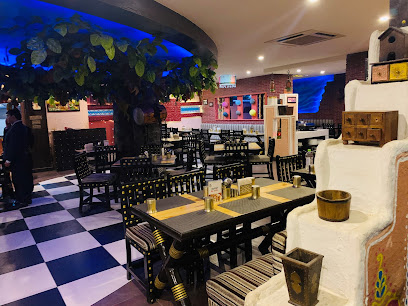
The Oberoi Amarvilas, Agra
Discover unparalleled luxury at The Oberoi Amarvilas in Agra, offering stunning views of the Taj Mahal and exquisite dining experiences.
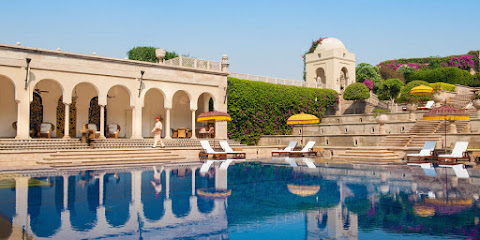
Pinch Of Spice
Experience the rich flavors of Mughlai and North Indian cuisine at Pinch Of Spice in Agra, where every meal is a delightful journey.
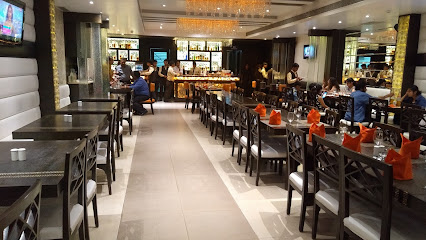
Aahar Restaurant & Banquet
Discover the rich flavors of modern Indian cuisine at Aahar Restaurant & Banquet in Agra - perfect for every taste bud.
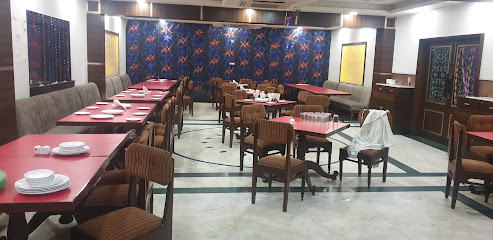
Joney's Place
Experience the best of Indian cuisine alongside global flavors at Joney's Place in Agra – a culinary delight for every traveler.
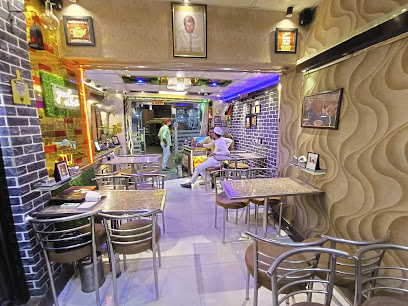
Good Vibes Cafe
Discover delightful flavors at Good Vibes Cafe in Agra—your perfect stop for breakfast and more near the Taj Mahal.
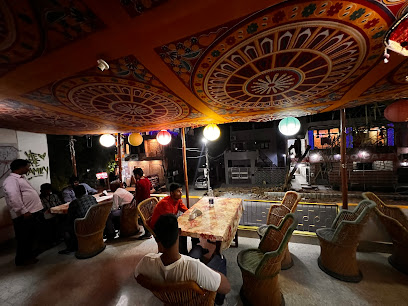
Udupi Brindavan Vegetarian Restaurant - Best South Indian Restraunt | Multi Cousine Vegetrian Restraunt in Agra
Experience the authentic taste of South India at Udupi Brindavan Vegetarian Restaurant in Agra - where vegetarian delights meet culinary excellence.
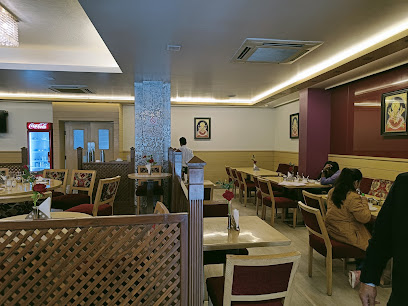
Deepee Restaurant (formerly Dasaprakash)
Savor the essence of South Indian flavors at Deepee Restaurant in Agra - where every dish tells a story.
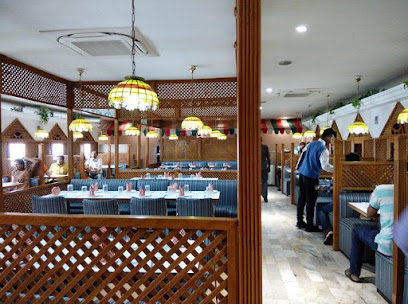
Tea’se Me - Rooftop Cafe
Discover Tea’se Me - Rooftop Cafe in Agra: A delightful culinary escape with stunning views and cozy ambiance for every traveler.
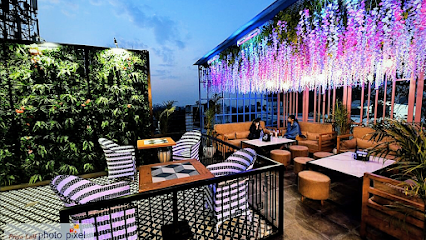
Heart of Taj Café & Kitchen - Agra
Discover the flavors of North India at Heart of Taj Café & Kitchen in Agra - a family-friendly dining gem near the iconic Taj Mahal.
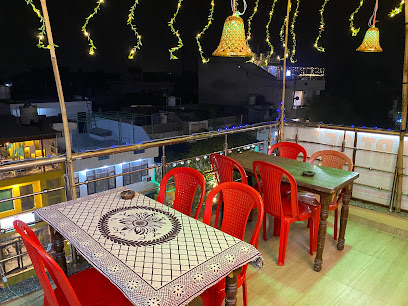
Sheroes Hangout Cafe
Experience delicious food at Sheroes Hangout Cafe in Agra while supporting women empowerment through culinary arts.
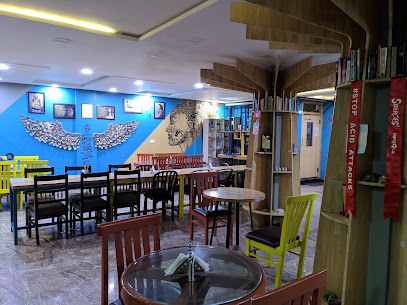
Urban Deck Tapas & Taproom
Discover the vibrant culinary scene at Urban Deck Tapas & Taproom in Agra - where delicious grills meet an inviting atmosphere.
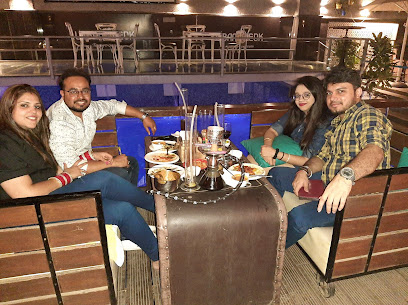
THE ROYAL DINING RESTAURANT
Discover the vibrant flavors of India at The Royal Dining Restaurant in Agra, perfect for tourists craving authentic culinary experiences.
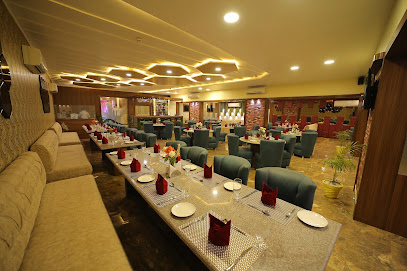
Markets, malls and hidden boutiques
Ashok Cosmos Mall
Explore Ashok Cosmos Mall, Agra's premier shopping destination featuring diverse retail, dining, and entertainment options for every traveler.
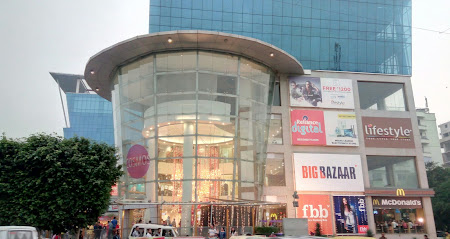
Shoppers Stop
Discover unbeatable shopping at Shoppers Stop in Agra, offering a wide range of clothing, accessories, and gifts for every traveler.

Bachoomal Sons Agra
Discover Agra's premier fashion destination at Bachoomal Sons, where exquisite bridal wear meets trendy clothing for the whole family.
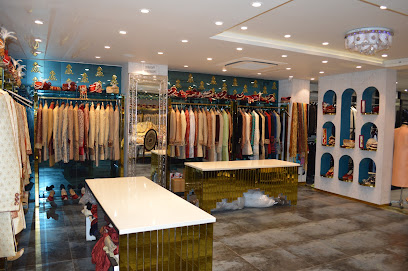
Firstcry.com Store Agra Fatehabad Road
Explore the Firstcry.com Store in Agra for a delightful range of baby products, ensuring quality and style for your little ones.
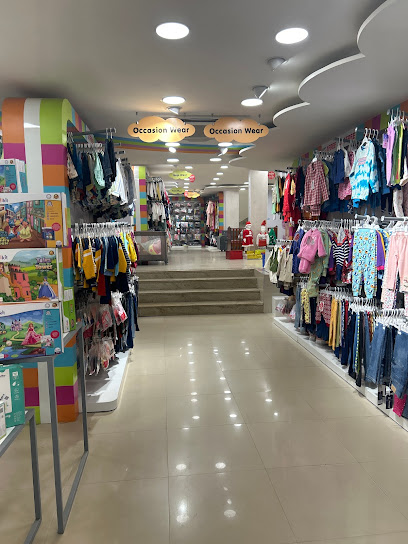
FirstCry Store Sikandra Agra - Best kids store in Agra
Discover the best baby products in Agra at the FirstCry Store Sikandra, where quality meets convenience for families.
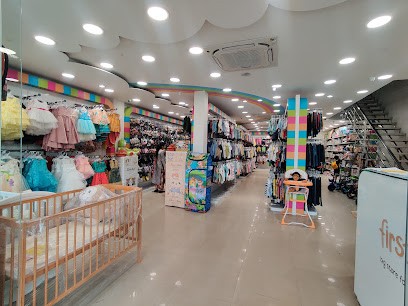
Lifestyle Stores
Explore Lifestyle Stores in Agra: Your one-stop destination for trendy fashion, unique gifts, and stylish accessories in the heart of the city.
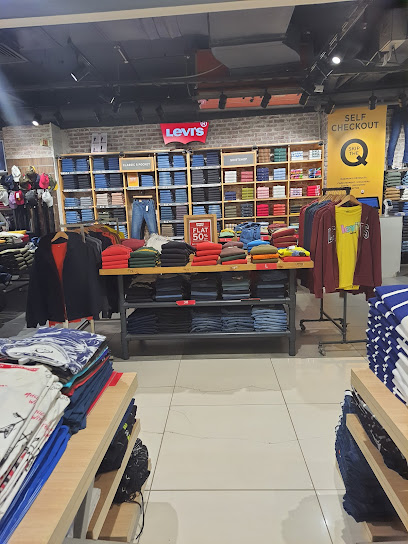
Unique Handicrafts
Explore Unique Handicrafts in Agra for exquisite Indian artistry and authentic souvenirs near the Taj Mahal.
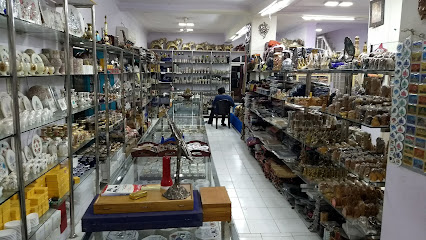
Firstcry.com Store Agra Wazirpura Road
Discover the ultimate shopping experience for baby products at Firstcry.com Store in Agra, where quality meets convenience for modern parents.
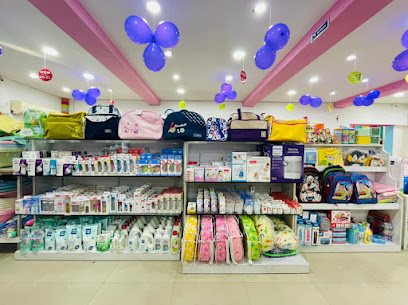
Womans Central Agra
Discover unique Western apparel and designer clothing at Womans Central Agra, a stylish boutique for the discerning traveler.
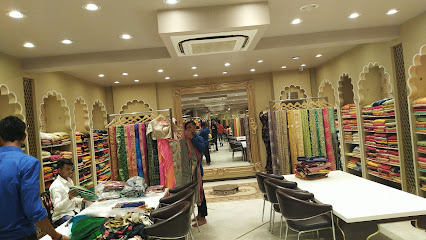
Subhash Emporium
Discover the rich heritage of Indian handicrafts at Subhash Emporium, a unique boutique and museum in Agra's vibrant marketplace.
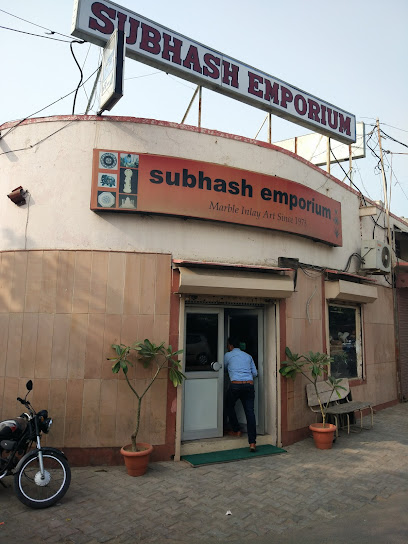
Plush Souvenirs
Explore Plush Souvenirs in Agra, where unique decorative items and affordable prices meet to create the perfect shopping experience.
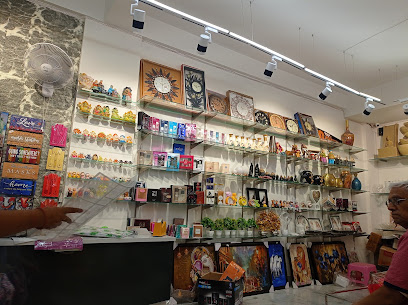
Miniso agra
Explore Miniso Agra for trendy, affordable products perfect for souvenirs and everyday essentials in the heart of Agra.
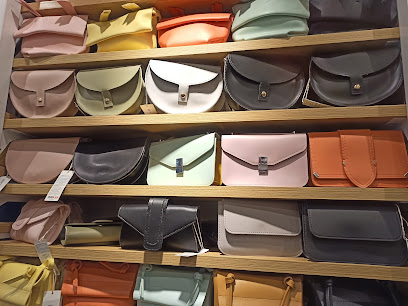
Miniso Agra
Uncover a treasure trove of affordable products at Miniso Agra, from cosmetics to toys, perfect for tourists seeking unique finds.
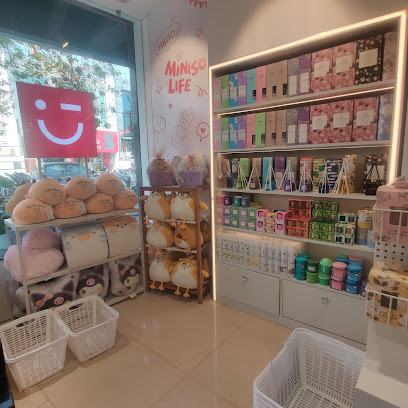
Taj Gallery
Explore the artistic charm of Taj Gallery in Agra, showcasing exquisite Indian handicrafts and art, just a stone's throw from the Taj Mahal.
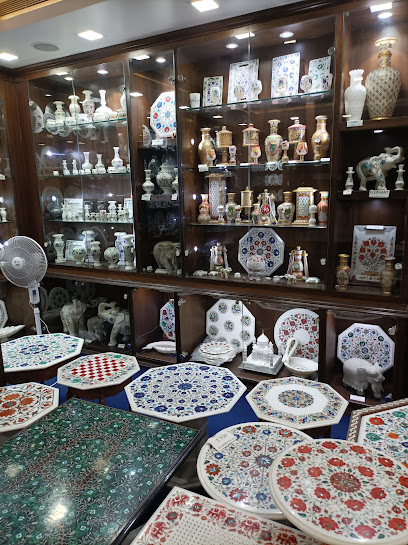
Gems & Art Gallery
Explore the rich craftsmanship at Gems & Art Gallery in Agra, a vibrant hub for unique jewelry, textiles, and local handicrafts.
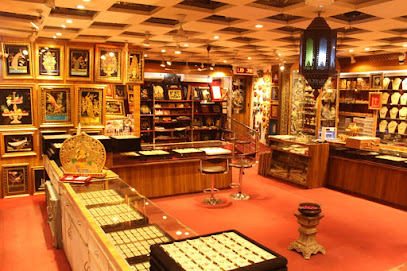
Essential bars & hidden hideouts
The Salt Cafe
Discover the ultimate dining experience at The Salt Cafe, serving diverse cuisines near the majestic Taj Mahal in Agra.
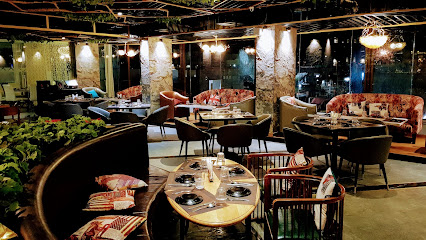
Molecule Agra
Discover Molecule Agra: A vibrant bar and restaurant offering exquisite cuisine and an impressive beverage selection in the heart of Agra.
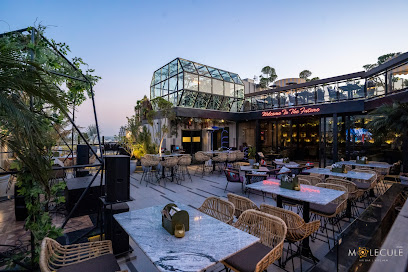
The Palm Burj - Best Rooftop | Best Lounge | Best Club | Best Pub | Best Restaurant in Agra
Experience Agra like never before at The Palm Burj, where breathtaking views meet exquisite dining and vibrant nightlife.
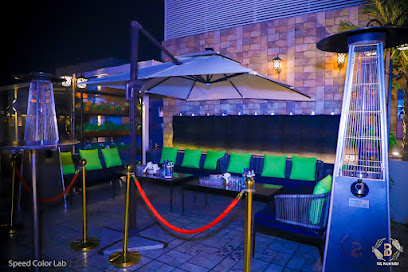
Folks Pub & Brewery
Explore the vibrant atmosphere and handcrafted brews at Folks Pub & Brewery, Agra's premier destination for beer enthusiasts.
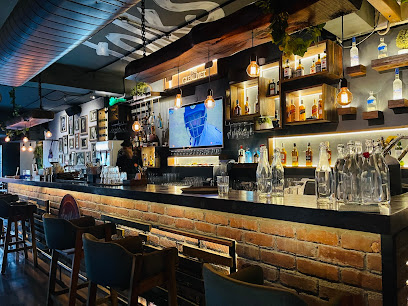
ITC Mughal, Maikhana - The Lobby Bar
Discover the rich flavors of Mughlai cuisine in an exquisite setting at Maikhana, ITC Mughal's luxurious lobby bar in Agra.
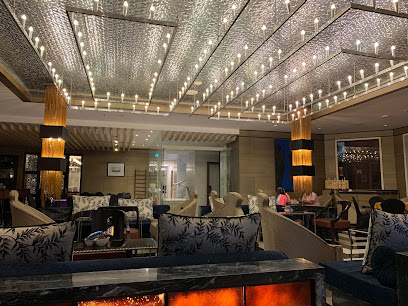
Fakira club - Best rooftop cafe in Agra / Best rooftop lounge in Agra / Best rooftop bar in Agra
Discover the vibrant energy of Fakira Club, Agra's top rooftop lounge, serving delicious food and stunning views for an unforgettable evening.
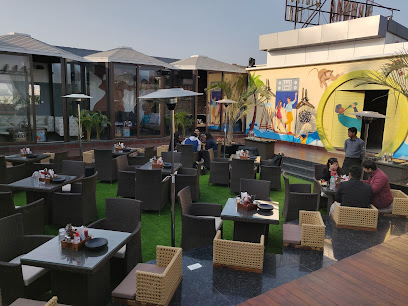
Downtown Cafe & Bar - Restropub ( Top Cafe in Agra)
Discover the lively Downtown Cafe & Bar in Agra, offering a delightful mix of cuisine, drinks, and vibrant atmosphere for tourists.
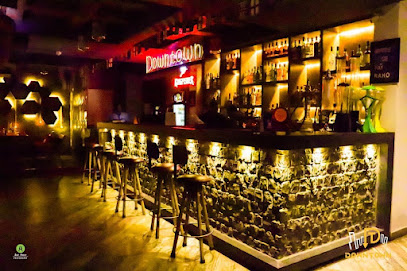
Moon Bar & Restaurant
Discover the vibrant flavors of Agra at Moon Bar & Restaurant, where culinary excellence meets an inviting atmosphere.
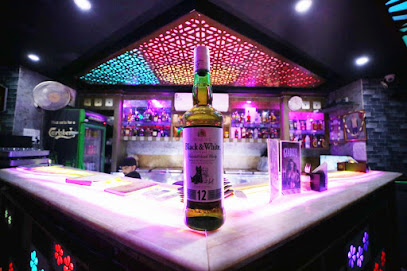
Cafe Chilam Bar & Bistro
Discover the perfect blend of flavors and ambiance at Cafe Chilam Bar & Bistro, a culinary hotspot in Agra's vibrant Taj Nagri Phase 2.
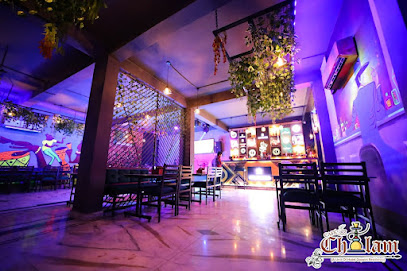
Sheetal Bar & A/C Restaurant
Discover a vibrant dining experience at Sheetal Bar & A/C Restaurant in Agra, blending flavorful local cuisine with a refreshing bar atmosphere.
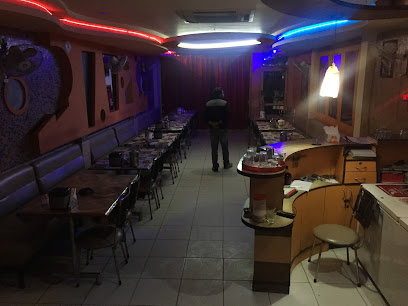
Milan Bar & Restaurant
Enjoy mouthwatering grilled dishes and refreshing drinks at Milan Bar & Restaurant, a must-visit culinary destination in Agra.
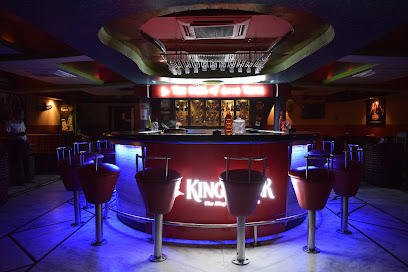
Pub Zee bar and lounge
Discover the lively charm of Pub Zee Bar and Lounge in Agra, where great food meets a vibrant atmosphere, perfect for unwinding after exploring the Taj Mahal.
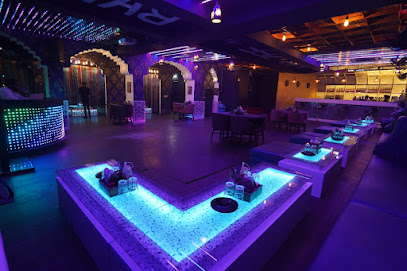
Altitude Rooftop Restaurant & Lounge - Agra's finest rooftop terrace/ Best rooftop lounge in Agra
Discover a culinary gem in Agra with stunning rooftop views, offering a blend of Indian and international cuisine at Altitude Rooftop Restaurant & Lounge.
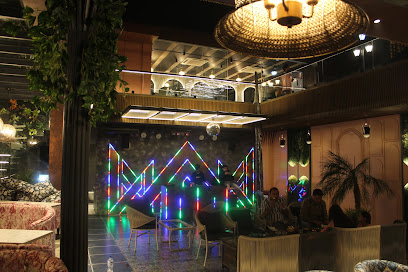
Surabhi Bar & Restaurant
Experience the vibrant flavors and welcoming ambiance of Surabhi Bar & Restaurant in Agra, where every meal is a celebration of taste and culture.
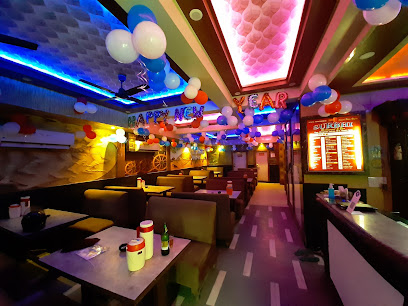
Local Phrases
-
- Helloनमस्ते
[Namaste] - Goodbyeअलविदा
[Alvida] - Yesहाँ
[Haan] - Noनहीं
[Nahi] - Please/You're welcomeकृपया
[Kripya] - Thank youधन्यवाद
[Dhanyavaad] - Excuse me/Sorryमाफ़ कीजिए
[Maaf kijiye] - How are you?आप कैसे हैं?
[Aap kaise hain?] - Fine. And you?ठीक हूँ। और आप?
[Theek hoon. Aur aap?] - Do you speak English?क्या आप अंग्रेज़ी बोलते हैं?
[Kya aap angrezi bolte hain?] - I don't understandमुझे समझ में नहीं आया
[Mujhe samajh mein nahi aaya]
- Helloनमस्ते
-
- I'd like to see the menu, pleaseकृपया मेनू देखना चाहूँ
[Kripya menu dekhna chahoon] - I don't eat meatमैं मांस नहीं खाता
[Main maans nahi khaata] - Cheers!चियर्स!
[Cheers!] - I would like to pay, pleaseकृपया मैं भुगतान करना चाहूँ
[Kripya main bhugtan karna chahoon]
- I'd like to see the menu, pleaseकृपया मेनू देखना चाहूँ
-
- Help!मदद!
[Madad!] - Go away!चले जाओ!
[Chale jao!] - Call the Police!पुलिस को बुलाओ!
[Police ko bulao!] - Call a doctor!डॉक्टर को बुलाओ!
[Doctor ko bulao!] - I'm lostमैं खो गया हूँ
[Main kho gaya hoon] - I'm illमुझे बीमारी है
[Mujhe bimari hai]
- Help!मदद!
-
- I'd like to buy...मैं खरीदना चाहूँ...
[Main khareedna chahoon...] - I'm just lookingमैं सिर्फ देख रहा हूँ
[Main sirf dekh raha hoon] - How much is it?यह कितने का है?
[Yeh kitne ka hai?] - That's too expensiveयह बहुत महंगा है
[Yeh bahut mehnga hai] - Can you lower the price?क्या आप कीमत कम कर सकते हैं?
[Kya aap kimat kam kar sakte hain?]
- I'd like to buy...मैं खरीदना चाहूँ...
-
- What time is it?अभी कितने बजे हैं?
[Abhi kitne baje hain?] - It's one o'clockएक बजे हैं
[Ek baje hain] - Half past (10)दस बजे के बाद आधे घंटे
[Das baje ke baad aadhe ghante] - Morningसुबह
[Subah] - Afternoonदोपहर
[Dopahar] - Eveningशाम
[Shaam] - Yesterdayकल
[Kal] - Todayआज
[Aaj] - Tomorrowकल
[Kal] - 1एक
[Ek] - 2दो
[Do] - 3तीन
[Teen] - 4चार
[Char] - 5पाँच
[Paanch] - 6छह
[Chhah] - 7सात
[Saath] - 8आठ
[Aath] - 9नौ
[Nau] - 10दस
[Das]
- What time is it?अभी कितने बजे हैं?
-
- Where's a/the...?...कहाँ है?
[...kahan hai?] - What's the address?पता क्या है?
[Pata kya hai?] - Can you show me (on the map)?क्या आप मुझे दिखा सकते हैं (नक्शे पर)?
[Kya aap mujhe dikhha sakte hain (naksha par)?] - When's the next (bus)?अगली (बस) कब है?
[Agli (bus) kab hai?] - A ticket (to ....)एक टिकट (....के लिए)
[Ek ticket (....ke liye)]
- Where's a/the...?...कहाँ है?
History of Agra
-
Agra, located on the banks of the Yamuna River, is believed to have been founded in the early 16th century by Sultan Sikandar Lodi of the Delhi Sultanate. It became an important city under his rule and later under the rule of his son, Sultan Ibrahim Lodi. The city's strategic location made it a significant military and administrative hub.
-
Agra reached its zenith during the Mughal era, particularly under the reign of Emperor Akbar the Great (1556 - 1605). Akbar made Agra his capital and constructed the Agra Fort, a UNESCO World Heritage site. This era also saw the building of the iconic Fatehpur Sikri, a nearby city that served as the Mughal capital for a brief period.
-
One of the most famous monuments in the world, the Taj Mahal, was commissioned by Emperor Shah Jahan in memory of his beloved wife Mumtaz Mahal. Construction began in 1632 and was completed in 1653. This architectural marvel is a UNESCO World Heritage site and attracts millions of visitors annually.
-
Agra came under British control in 1803 following the Second Anglo-Maratha War. During the British Raj, Agra continued to be an important administrative center. The British built several structures, including the Agra Cantonment and St. George's Cathedral, contributing to the city's colonial architecture.
-
Agra played a role in India's struggle for independence. The city witnessed various movements and protests against British rule. Leaders like Mahatma Gandhi visited Agra to mobilize support for the independence cause. The Quit India Movement and other significant events saw active participation from the residents of Agra.
-
After India gained independence in 1947, Agra continued to grow and modernize. The city developed into a major tourist destination, attracting visitors from around the world. Modern Agra boasts a mix of historical sites and contemporary amenities, making it a vibrant blend of the old and the new.
-
Agra is renowned for its rich cultural heritage, including traditional crafts like marble inlay work, also known as 'Pietra Dura.' The city is also famous for its Mughlai cuisine, which includes dishes like Petha, a sweet delicacy. The annual Taj Mahotsav festival celebrates the city's cultural richness with performances, crafts, and food.
Agra Essentials
-
Agra is located in the northern part of India, in the state of Uttar Pradesh. The nearest international airport is Indira Gandhi International Airport in New Delhi, approximately 220 kilometers away. From New Delhi, you can take the Gatimaan Express or Shatabdi Express trains, which offer a comfortable and fast journey of about 1.5 to 2 hours. Alternatively, you can hire a taxi or take a bus from Delhi to Agra; the journey by road takes around 3 to 4 hours.
-
Agra has various transportation options. Auto-rickshaws and cycle-rickshaws are commonly used for short distances. For longer trips, local taxis and app-based ride services like Uber and Ola are available. Public buses operate within the city and to nearby destinations. Renting a car with a driver is also an option for greater convenience and ease of travel.
-
The official currency in India is the Indian Rupee (INR). Credit and debit cards are widely accepted in most hotels, restaurants, and shops. However, it is advisable to carry some cash, especially when visiting smaller establishments and local markets. ATMs are widely available throughout Agra, but it is wise to withdraw sufficient cash before heading to remote areas.
-
Agra is generally safe for tourists, but it is important to take standard precautions. Avoid walking alone at night in unfamiliar areas and be cautious of your belongings in crowded places. Areas like the Taj Ganj neighborhood can be bustling and may attract pickpockets. Always use reputable taxi services and avoid accepting unsolicited offers of help from strangers.
-
In case of emergency, dial 112 for immediate assistance. The local police station and medical facilities are available in Agra. It is recommended to have travel insurance that covers medical emergencies. For minor health issues, there are numerous pharmacies around the city where you can purchase over-the-counter medications.
-
Fashion: Do dress modestly, especially when visiting religious sites. Avoid wearing revealing clothing. Religion: Do respect local customs and traditions; remove your shoes before entering temples and other religious places. Public Transport: Do be respectful and patient. Avoid eating or drinking on public transport. Greetings: Do greet people with a 'Namaste' by joining your palms together. Eating & Drinking: Do try local delicacies and accept food offerings graciously. Don't refuse hospitality, as it is considered impolite.
-
To experience Agra like a local, visit the Sadar Bazaar for a true shopping experience and taste street food like Petha and Dahi Bhalla. Engage with locals, as they are often friendly and willing to share stories about the city's history and culture. Don't miss visiting lesser-known sites like Mehtab Bagh for a fantastic view of the Taj Mahal at sunset. For a unique experience, take a boat ride on the Yamuna River.
Nearby Cities to Agra
-
Things To Do in Gwalior
-
Things To Do in Delhi
-
Things To Do in Ranthambore
-
Things To Do in Jaipur
-
Things To Do in Kanpur
-
Things To Do in Lucknow
-
Things To Do in Rishikesh
-
Things To Do in Pushkar
-
Things To Do in Bhopal
-
Things To Do in Shimla
-
Things To Do in Lumbini
-
Things To Do in Jabalpur
-
Things To Do in Jodhpur
-
Things To Do in Udaipur
-
Things To Do in Varanasi

















